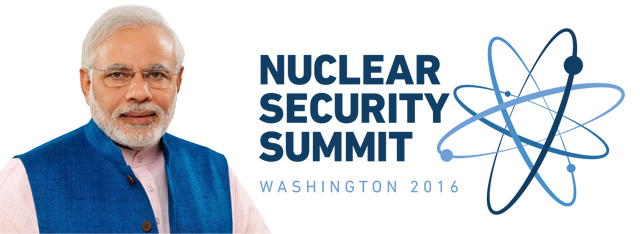 Prime Minister Narendra Modi’s third trip to the US for the Nuclear Security Summit has once again set ambitious goals for the two nations to deepen their bilateral ties. At the NSS dinner, Modi sat on the left side of President Obama in the East Room of the White House, and the duo exchanged some dialogues.
Prime Minister Narendra Modi’s third trip to the US for the Nuclear Security Summit has once again set ambitious goals for the two nations to deepen their bilateral ties. At the NSS dinner, Modi sat on the left side of President Obama in the East Room of the White House, and the duo exchanged some dialogues.
Modi began his speech at the Summit dinner by applauding President Obama’s sincere effort to address the issues of global security and nuclear terrorism. He said that terrorism is globally networked and nuclear security must remain an abiding national priority for every country. He also added that one country’s terrorist does not mean there’s no danger to another country; it is a collaborative effort of all nations to fight terrorism.
A glimpse into Modi’s itinerary includes a series of bilateral meetings with several leaders on the sideline including, Pakistan Prime Minister Nawaz Sharif as well as President Obama, however, only one meeting has been officially announced, with Prime Minister of New Zealand, John Key.
In the year 2015, USINPAC partnered with News X to host two Television Round Table Conferences in San Francisco. The main topics of discussion were Modi’s vision “Make in India” and “Is India ready to go digital?” The ‘Make in India’ roundtable discussions were directly linked to creating tomorrow’s smart cities in India, developing best practices around innovation and entrepreneurship, enhancing Indo-US trade relations and deepening the Indian sectors’ integration into the global supply chain. The second round table conference aimed to address the issues on creating a powerful digital infrastructure in India, making all businesses go ‘online’ and enhancing overall digital literacy in the country.
In addition to the above events, USINPAC also hosted a Congressional Briefing on US-India Nuclear Trade in June last year. Several leaders of the Indian American community supported USINPAC to facilitate the congressional approval of the US-India 123 Agreement in 2008, which set the stage for the two nations to join forces together for civilian nuclear energy trade; the event took place at Capitol Hill, which witnessed immense support for the historic passage of the 2006 Hyde Act.
The final series of NSS will adopt a five-point action plan as an objective to the outcomes of the NSS initiative, which will involve International Atomic Energy Agency (IAEA), UN, Interpol, Global Initiative to Combat Nuclear Terrorism (GICNT) and G-8 to reinforce global nuclear security against nuclear terrorism. India is an active member of three of four forums but is only a participating member of G-8, sometimes called G8+5. The “+5” refers to countries like Brazil, China, India, Mexico and South Africa.
